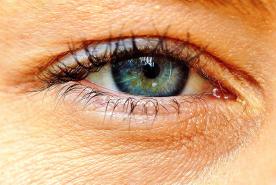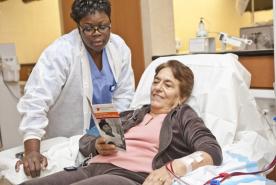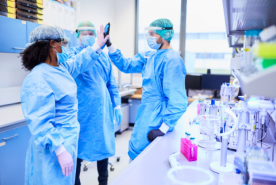March 14, 2022
Trigger warning: This article discusses suicidal ideation. If you or someone you know is contemplating suicide, call the National Suicide Prevention Lifeline at 1-800-273-8255 or visit National Suicide Prevention Lifeline for more resources.
Silent isn't usually used to describe Sarah Hyland, a well-known actress for her role in Modern Family. Witty, talented, outspoken, funny, and inspirational? Yes. However, she has been silent about one thing for a long time–how her chronic kidney issues affected her while filming.
Sarah Hyland's Journey
Sarah Hyland has spoken about her kidney dysplasia and transplant journey before. She has seen so much success that many would think it had come easy. However, her candid interview on Quitters with on-set mom Julie Bowen and cohost Chad Sanders revealed just how hard it was for Hyland to perform through the exhaustion and pain.
Filming Modern Family
Playing Haley Dunphy on Modern Family for the first five years was an escape for Hyland. Then her health took a turn.
She lost weight, was in severe pain, and felt perpetual exhaustion. She even forgot filming certain episodes, including 2011's "Hit and Run," due to fatigue.
"It was right before my first transplant. You have to be a certain level of sick to receive a transplant so I was reaching that certain level of sick.” she explained to Julie and Chad, “I was not able to be awake for like eight hours at a time. I was so exhausted all the time so I would be on set filming and I would be dead asleep, my head on the table."
When Hyland heard her cue to perform, she'd pop up, do her scene, and then go back down to sleep.
Join the NKF Blog Newsletter
Get inspirational stories and kidney disease resources delivered to your inbox every month. You'll gain practical insights and expert advice to help you better understand and manage your kidney health no matter where you are on your kidney journey. Subscribe today.
Hyland's transplant journey
Hyland received a kidney from her father when she was 21. Sadly, her body rejected the organ four years later. Hyland worked through hospital visits, medications that left her face swollen, and dialysis three times a week.
Luckily, her brother Ian was a match to donate his kidney, but Hyland struggled while waiting for the transplant evaluation to be completed.
"My dad's kidney had already failed at that point. I was on dialysis. What if this happens again? Hyland said, "What do I do? That's where I felt suicidal. This is just hard for me to do anymore. And it would just be easier for everyone else too."
Hyland attributed these thoughts to putting on a brave face despite the life-long pain and exhaustion she experienced from the chronic illness.
"Twenty-seven years of almost always being in pain... I don't think I've gone more than one or two years without being hospitalized." Hyland said, "I don't like to victimize myself. I don't like other people to victimize me…I had almost 27 years of putting on a show, whether it was on Broadway or in my family living room."
Depression and kidney disease
Unfortunately, Hyland is not alone in this experience. One study estimates that up to 20% of people with early and late-stage kidney disease experience anxiety, social isolation, loneliness, or depression.
Keep an eye out for these symptoms and seek professional help if you experience them for more than two weeks. Depression can affect your physical health as well.
So, remember- you are not alone. Help is available for you if you need it.
- NKF Peers offers people with kidney disease a safe space to connect with trained mentors via telephone or an in-app chat. Sometimes speaking with people in a similar situation can make all the difference.
- The National Suicide Prevention Lifeline is available 24 hours a day, seven days a week.
- Your doctor, nurse, or other healthcare professionals can be an excellent resource for improving your mental health.
- Small lifestyle changes like sleeping 8 hours a day, confiding in someone, and regularly exercising can also help improve mood.
Why she's opening up now
Growing up, Hyland didn't have many female role models in the acting industry who were open about their chronic health issues.
Now that she is on the other side of recovery and doing well, she hopes her story helps others experiencing similar challenges.
"We don't talk about it." Hyland said, "I thought if I talk about this, not only do I think it will help me and be a bit cathartic, in the sense of I'm proud of myself for making it through the other side but as well as shedding even more light. The mental health community needs more light on it."
Share your story
All patients face challenges - so let's talk about it! Your story may be the one that gives another person with kidney disease hope.









